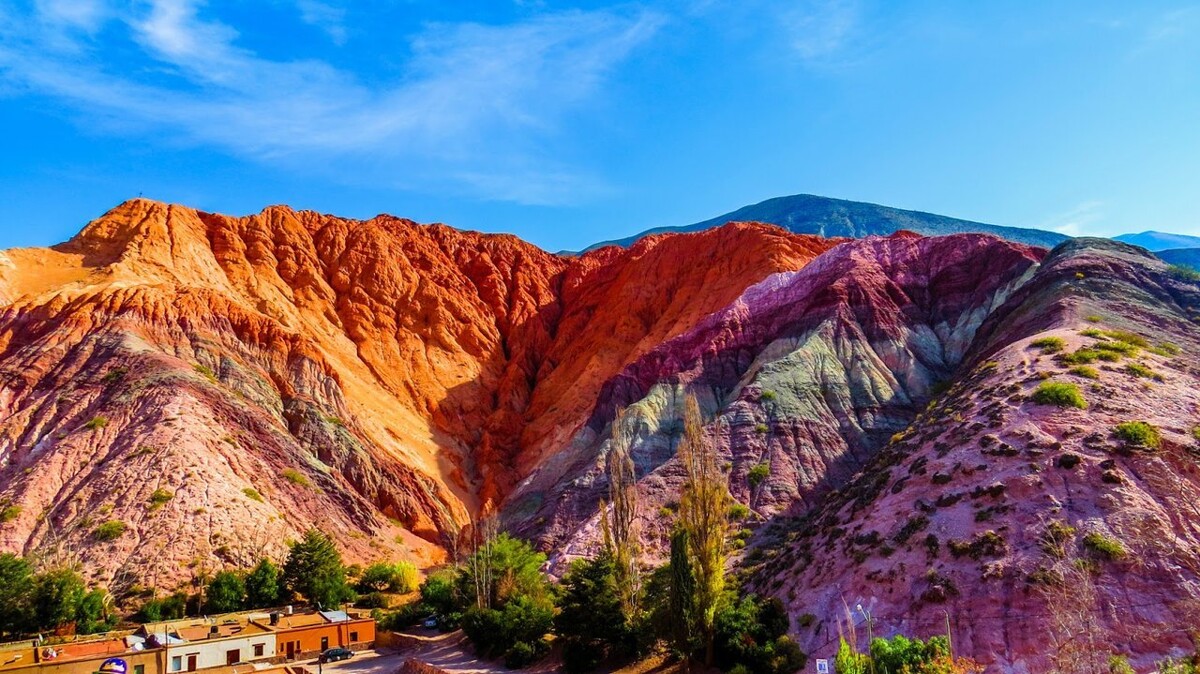
The province of Jujuy, in Argentina, is a unique tourist destination that offers a combination of stunning landscapes and a rich cultural heritage. Along its 150 km stretch are historic towns like Purmamarca, Tilcara, and Humahuaca, surrounded by multicolored hills that seem to have been hand-painted.
One of the most iconic places in Jujuy is the Hill of Seven Colors, located in the Quebrada de Humahuaca, near Abra Pampa. This site is famous for its vibrant hues and is one of the most photographed in Argentina. Another must-visit stop is La Quiaca, the endpoint of Route 9 and gateway to Bolivia, where the contrast between the blue water and the arid landscape creates a magical setting.
Just a few kilometers from the capital, San Salvador de Jujuy, are the Termas de Reyes, a thermal complex surrounded by mountains that offers waters with therapeutic properties. Additionally, Jujuy is home to Laguna de los Pozuelos, a natural reserve in the far north of the province where flamingos and other native birds can be spotted.
The natural and cultural richness of Jujuy makes it an ideal destination for adventure and history lovers. The Pucará de Tilcara, a pre-Incan archaeological site with stunning views of the Quebrada, is just one of the many attractions the province offers. In Humahuaca, the Hornocal mountain range dazzles with its hues ranging from red to green, while the Ojos de Mar, a set of turquoise lagoons in the Jujuy puna, provide a unique experience.
Jujuy is a destination that has it all: from the imposing Valley of the Jujuy Moon, a landscape of wind-eroded rock formations reminiscent of a lunar terrain, to the majestic Salinas Grandes, a salt desert at 3,450 meters above sea level. Whether by car, on organized tours, or with an adventurous spirit, visiting Jujuy is to discover a true treasure in Northern Argentina.
For those wondering how to get to Jujuy from the Autonomous City of Buenos Aires, there are various options: direct flights from Ezeiza and Aeroparque airports, a car trip of approximately 1,500 km via RN9, or bus services with a travel time of between 22 and 24 hours. Ultimately, Jujuy is a paradise of contrasts where nature and history merge to create an unforgettable experience.














